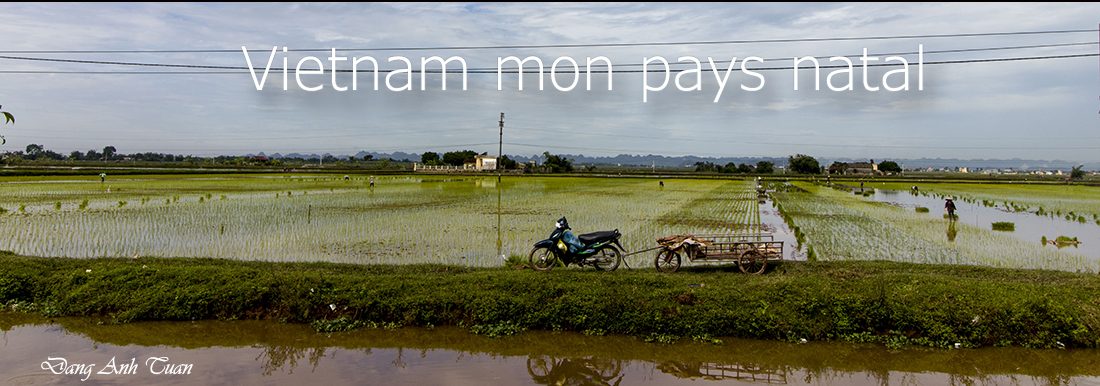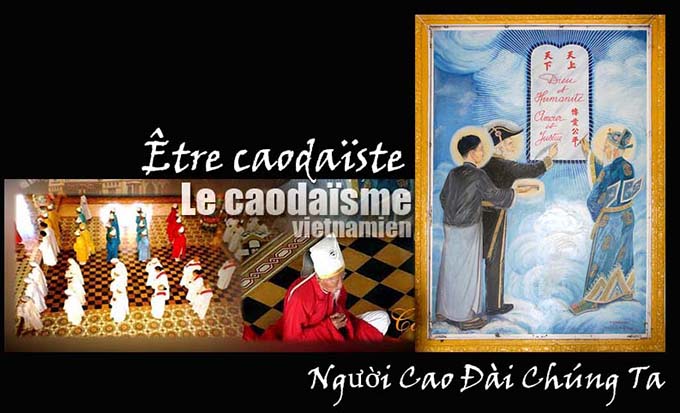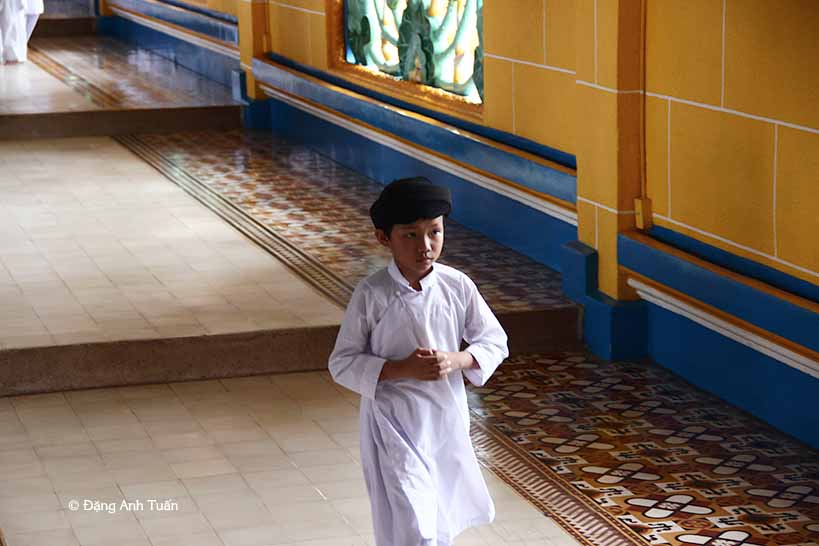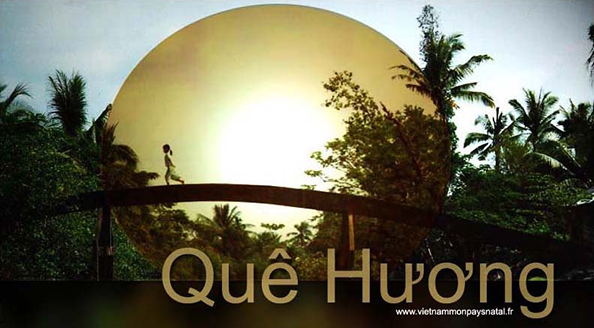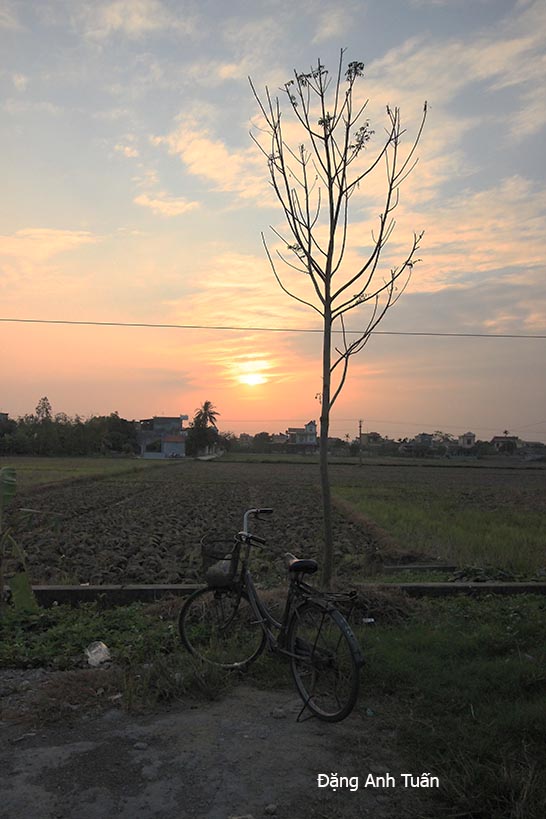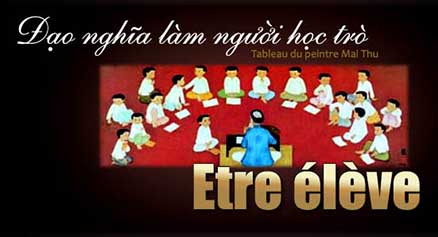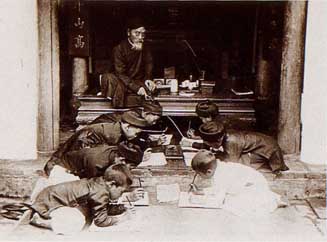Trẻ hay già, Sĩ phu luôn luôn được coi trọng trong xã hội Việt Nam. Không chỉ được sự tôn trọng mà còn lại là người được đứng đầu trong hệ thống phân cấp xã hội trước nông dân, thợ thủ công và thương nhân. Đây là lý do tại sao sĩ phu thường không ngừng bị chê cười thông qua các bài ca dao nổi tiếng.
Ai ơi chớ lấy học trò
Dài lưng tốn vải ăn no lại nằm.
Nhờ có sức học cao nên sĩ phu không để bản thân bị xúc phạm bởi những lời này và cố gắng đáp lại với vẻ chế nhạo qua các bài ca dao như sau:
Hay nằm đã có võng đào
Dài lưng đã có, áo trào nhà vua
Hay ăn đã có thóc kho
Việc gì mà chẳng ăn no lại nằm.
Sự nhận xét này có từ thời Khổng giáo được sử dụng như một mô hình duy nhất trong tổ chức nhà nước. Việc tuyển dụng sĩ phu để làm quan chủ yếu dựa trên các cuộc thi văn học diễn ra cứ ba năm một lần ở ngôi đền lớn của Đức Khổng Tử hay Văn Miếu. Đền nầy được xây dựng bởi vua Lý Thánh Tôn vào năm 1070 và được chuyển đổi thành Quốc Tự Giám vào năm 1076. Từ năm 1484 trở đi, tên của sĩ phu trúng cử trong cuộc thi quan được khắc trên tấm bia với ngày sinh và những công trạng.
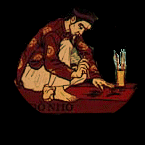
Việc ghi tên trên tấm bia được bãi bỏ vào năm 1778. Đây cũng là lý do việc trúng cử trở thành là nỗi ám ảnh trọng đại đối với tất cả các sĩ phu. Có nhiều người được trúng cử các cuộc thi với sự dễ dàng đáng ngạc nhiên (Nguyễn Bĩnh Khiêm, Chu văn An hoặc Lê Quí Ðôn). Còn có những người khác bị trượt nhiều lần. Đây là trường hợp của sĩ phu Trần Tế Xương nên trong các bài thơ của ông thường có lời lẽ châm biếm nhức nhối. Sự thất bại vô tận và nhìều lần khiến nó có ảnh hưởng rất lớn trong các tác phẩm của ông.
Ngoài kiến thức văn học, ứng cử viên trúng cử hay quan lại trong tương lai phải có tất cả các khái niệm về thiên mệnh, lòng hiếu thảo, nghĩa tôi với vua và tất cả các giá trị đem lại sự bền chặt trong tầm nhìn Nho giáo. Được có những khái niệm này, sĩ phu cố gắng tôn vinh sứ mệnh của mình không chỉ cho đến cuối đời mà đôi khi còn phải trả giá bằng mạng sống của mình.
Đây là trường hợp của sĩ phu Nguyễn Du. Ông xin về hưu thay vì phục vụ một triều đại mới sau sự sụp đổ của nhà Lê. Đó cũng là trường hợp của sĩ phu Phan Thanh Giản quyết định tự đầu độc mình bằng cách khuyên các con của mình nên về làm rẫy và không nên có một chức vụ nào trong thời Pháp chiếm đóng Nam Kỳ vào năm 1867. Đối với sĩ phu Nguyễn Ðình Chiễu, tác giả cuốn sách nổi tiếng « Lục Vân Tiên » và là một trong những nhân vật cao quý nhất của các sĩ phu, ông đã không ngừng hỗ trợ tinh thần cho cuộc kháng chiến trong thời kỳ thuộc địa.
Trong tầm nhìn Nho giáo, sĩ phu cố gắng duy trì bằng mọi giá và áp dụng nghiêm ngặt các nguyên tắc này trừ khi nhà vua không còn xứng đáng để sĩ phu tuân lệnh. Trong trường hợp này, sĩ phu yêu chuộng công lý có thể lật đổ nhà vua vì vua không còn giữ được thiên mệnh. Đây là trường hợp của sĩ phu Cao Bá Quát, người tham gia vào «Giặc Châu Chấu» lấy danh nghĩa của nhà Lê chống lại vua vua Tự Đức. Ông bị bắt và bị xử tử sau đó vào năm 1854.
Mặc dù sĩ phu là một trong những cột trụ cơ bản của xã hội mà có rất nhiều triều đại Việt Nam dựa vào đó để cai trị đất nước, họ cũng là người bảo vệ chính đáng các giá trị đạo đức trong đó có năm mối quan hệ của con người (hay Ngũ luân): giữa nhà vua và bầy tôi, giữa cha và con, giữa chồng và vợ, giữa anh và em và giữa họ và bạn bè). Chính nhờ đó có được sự gắn kết chặt chẽ của xã hội và bản sắc dân tộc. Tuy nhiên, qua nhiều thế kỷ, đó là cũng là yếu tố bất động và chủ nghĩa cô lập văn hóa đã gây ra sự sụp đổ của đế chế nhà Nguyễn từ năm 1840.
Cứ tiếp tục khinh thường sức mạnh của nước ngoài và duy trì chủ nghĩa bảo thủ, đế chế nầy đã không thể thích nghi với các cải cách hiện đại hóa cần có, được biện hộ bởi sĩ phu hiện đại Nguyễn Trường Tộ. Do đó, tư tưởng nầy trở thành một trở ngại lớn cho bất kỳ sự thay đổi nào mà Việt Nam cần có để đáp ứng lại tham vọng của các cường quốc nước ngoài. Chính vì vậy đế chế nầy bị sụp đổ trong cuộc chinh phạt của người Pháp.
Số sĩ phu có đến 40.000 người trong đó có khoảng 20.000 người có cấp bậc vào năm 1880. Sĩ phu cuối cùng được biết đến với lòng yêu nước và chủ nghĩa cải cách, đó là cụ Phan Chu Trinh (hay thi sĩ Tây Hồ). Ông ủng hộ các cuộc cải cách và dành sự ưu tiên cho sự tiến bộ chung của xã hội và cho kiến thức hiện đại trên việc độc lập chính trị đơn giản. Việc lưu đày ông đến đảo Côn Lôn (Poulo Condor) và đặc biệt là cái chết của ông vào năm 1926 làm chấm dứt giấc mơ của tất cả người dân Việt muốn có được một nước Việt Nam độc lập với chính sách phi bạo lực và phi thực dân hóa mà học giả đã biện hộ và bảo vệ với niềm tin mãnh liệt qua nhiều năm tháng. Tâm trạng của ông được thể hiện trong bài thơ của ông có tựa đề là :
Phan Chu Trinh
Đèn sáp
Cháy đầu bởi đỡ cơn tăm tối,
Nóng ruột càng thêm sự sáng soi.
Mở cửa vì đâu nên gió lọt,
Trót đêm nhỏ giọt tỏ cùng ai
.
Đây là những giọt nước mắt của một nhà trí thức Việt Nam lừng lẫy. Nhưng đó cũng là tiếng khóc tuyệt vọng của một nhà yêu nước Việt Nam vĩ đại đối mặt với số phận của đất nước mình.
